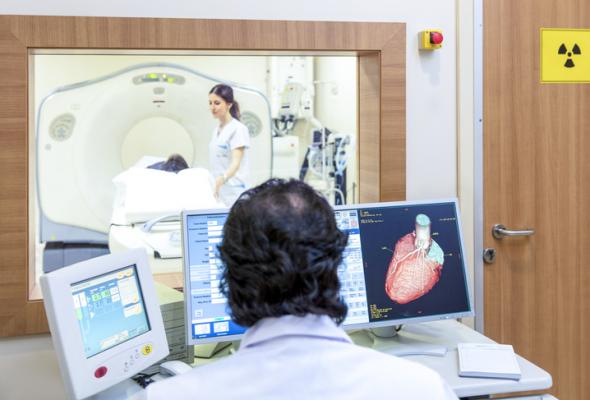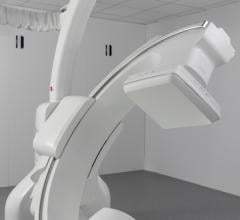
Getty Images
September 14, 2020 — A cardiac MRI is effective in identifying inflammation of the heart muscle in athletes and can help determine when those who have recovered from COVID-19 can safely return to play in competitive sports, according to a new study by researchers at The Ohio State University Wexner Medical Center. The research is published online in JAMA Cardiology.
Ohio State researchers examined 26 COVID-19 positive male and female competitive college athletes for signs of myocarditis, a rare disease that can cause heart failure and sudden cardiac death. Most cases of myocarditis, which is usually caused by a viral infection, happen in young adults with males affected more than females. Recent studies have shown myocardial inflammation in patients who recovered from COVID-19. Twelve of the athletes studied by Ohio State researchers reported mild symptoms of COVID-19 and the rest were asymptomatic.
Recently published protocols recommend the use of a combination of clinical examination, echocardiogram (an ultrasound), electrocardiogram (records a heartbeat) and a blood test to help with diagnosis of myocarditis in athletes prior to return to competitive play. The Ohio State researchers used all of these methods as well as cardiac magnetic resonance (CMR) imaging, which they found to be effective in identifying myocardial inflammation not picked up by other methods.
“This is the first study to systematically investigate the use of CMR imaging in competitive athletes recovered from COVID-19 infection. CMR has the potential to identify a high-risk group for adverse outcomes and may, importantly, risk stratify athletes for safe participation, as CMR mapping techniques have a high negative predictive value to rule out myocarditis,” said Saurabh Rajpal, M.D., a cardiologist and an assistant professor in the Division of Cardiovascular Medicine at The Ohio State University College of Medicine, who led the study.
In the study, four athletes (15%) were shown to possibly have myocarditis by MRI criteria. In addition to these four, eight others had evidence of scar tissue, suggesting either prior myocardial injury or normal athletic adaptation of the heart.
“It’s not known what caused the scar tissue in those eight, or if it was related to having COVID-19,” Rajpal said. “Additionally, the CMR imaging ruled out myocarditis for all athletes without MRI evidence of inflammation, allowing them to return to playing sports.”
Myocarditis can happen to anyone, not just athletes.
"The public should be aware of these findings and know the symptoms of heart disease with COVID-19 infection. As people begin to exercise after recovering from the virus, any chest pain, shortness of breath or abnormal heart beats should be evaluated by a doctor," said Curt Daniels, M.D., co-author, cardiologist and professor at Ohio State Wexner Medical Center.
The study’s authors recommend more research on CMR screening, including long-term follow-ups with athletes and control populations.


 February 16, 2026
February 16, 2026 









